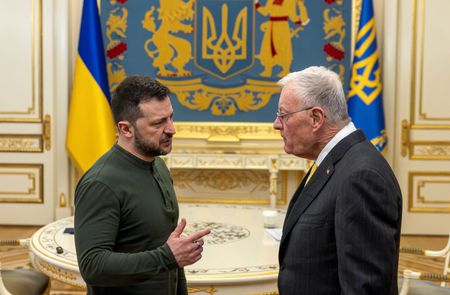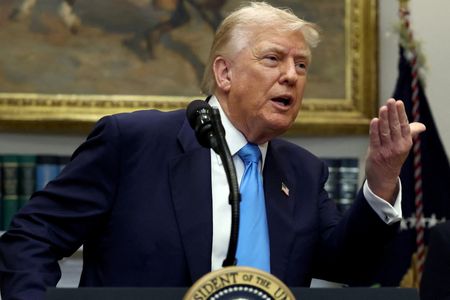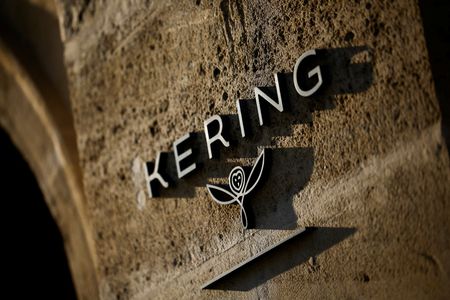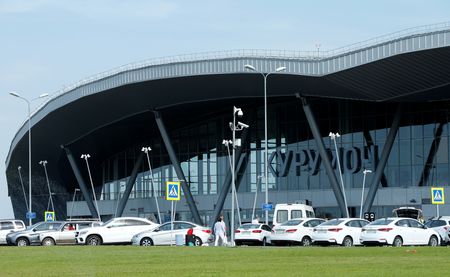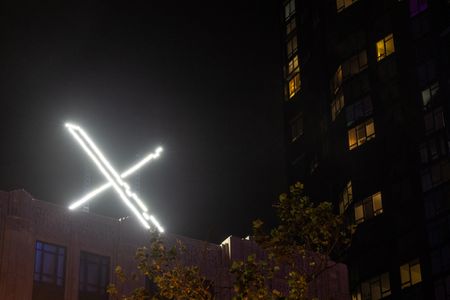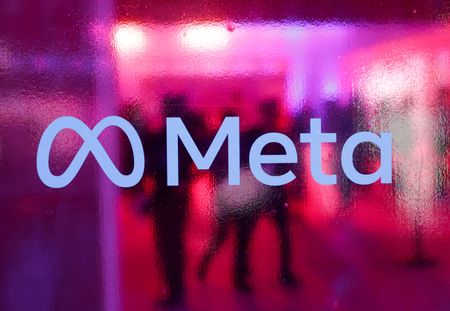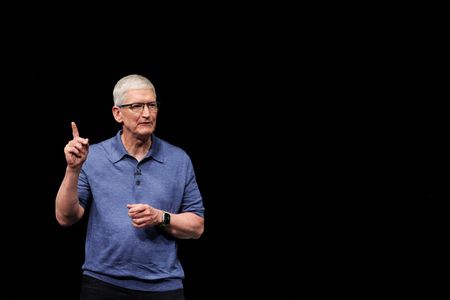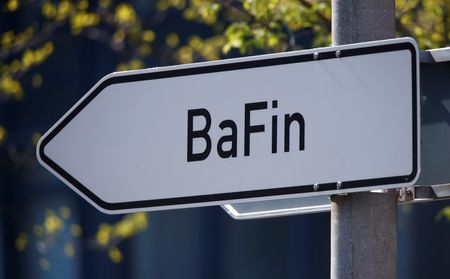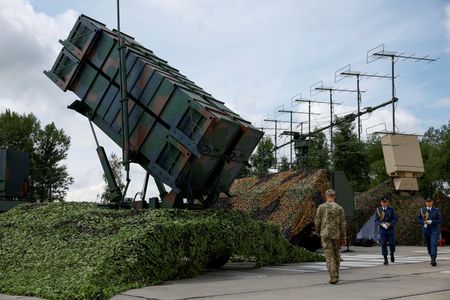By Olena Harmash, Tom Balmforth and Jeff Mason
KYIV (Reuters) -U.S. President Donald Trump’s envoy for the Ukraine conflict met President Volodymyr Zelenskiy in Kyiv on Thursday but there was no immediate word on whether their talks had helped smooth over an unprecedented wartime rift between the once firm allies, and key U.S. officials indicated that major frustrations remain.
Zelenskiy had earlier struck a conciliatory tone after accusing Trump of repeating Russian disinformation in response to the U.S. president’s accusation that Ukraine had started the three-year-old war with Russia. Trump went on to refer to Zelenskiy as a “dictator” who should act fast or lose his country.
Trump, in office for just a month, is pushing for a quick deal to end the war and has alarmed Washington’s European allies by leaving them and Ukraine out of initial talks with Russia.
His vice president, JD Vance, said on Thursday he believed an end to the conflict was near and there was no stopping the war without speaking to Russia.
U.S. National Security Advisor Mike Waltz, meanwhile, told a White House press briefing that Zelenskiy’s insults were unacceptable and that the Ukrainian president needed to come back to the table and discuss a previously floated deal to give the United States access to Ukraine’s minerals resources.
Trump’s Ukraine and Russia envoy, Keith Kellogg, had arrived in Kyiv on Wednesday, saying he was there to listen.
Following the meeting, Zelenskiy wrote on X that he had a detailed and productive conversation with Kellogg about prisoners of war, effective security guarantees that would be part of any peace agreement, and the battlefield situation.
But there were few additional details available, and a planned joint press conference was cancelled at the U.S.’s request, Zelenskiy’s office said.
Trump is seeking to reestablish ties with Russia and also invest in Ukraine’s mineral resources critical to the energy transition. Ukraine rejected an initial U.S. plan as it did not include security guarantees.
Reuters reported on Wednesday that the Trump administration was considering presenting a simplified minerals deal to Zelinskiy, though the Ukrainian president made no mention of the revised agreement in his social media remarks.
A possible meeting between Trump and Russian President Vladimir Putin “will largely depend on whether we can make any progress on ending the war in Ukraine,” U.S. Secretary of State Marco Rubio said on Thursday.
“You don’t generally have these meetings until you know some outcome or some progress has been made,” Rubio told journalist Catherine Herridge in an interview broadcast on X.
SECURITY GUARANTEES
European leaders have responded to Trump’s stance on Ukraine by pledging to step up spending on defence and some are considering a U.S.-backed European peacekeeping force for the country.
French President Emmanuel Macron, who is due to meet with Trump in Washington on Monday, said on Thursday he would tell Trump not to be “weak” on Putin.
“How can you be credible with China if you’re weak with Putin?” Macron said, during a question-and-answer session on social media.
Waltz, for his part, said the U.S. would welcome European-backed security guarantees for Ukraine, and he pushed for all NATO members to be spending at least 2% of their GDP on defense by the alliance’s next summit, set for June.
The Kremlin says the European plan is a major cause for concern but Zelenskiy and NATO have welcomed it.
“It is vital that … Russia will never again try to take one more square kilometre of Ukrainian land,” NATO Secretary-General Mark Rutte said.
Russian forces have laid Ukrainian cities, towns and villages to waste and are edging forward along parts of the 1,000-km (600-mile) front line across eastern and southern Ukraine. Moscow controls a fifth of Ukraine and claims ownership of more.
Ukrainian officials say a ceasefire would just give Russia time to prepare for further aggression. However, the head of Ukrainian military intelligence agency said on Thursday there could be a ceasefire this year, while casting doubt on its durability.
UKRAINIANS RALLY ROUND
At the center of Trump’s charge that Zelenskiy is a dictator is that Ukraine has not held elections because of martial law, which it declared when Russia unleashed its invasion on February 24, 2022.
Martial law, which provides authorities with emergency powers for the war effort, prohibits holding elections. Zelenskiy won office in 2019 and his mandate would normally have ended last May.
Trump’s comments spurred some, though not all, of Ukraine’s opposition figures to rally around Zelenskiy.
Ex-prime minister Yulia Tymoshenko said Zelenskiy was Ukraine’s legitimate leader until someone else was elected, and that it was “impossible and immoral” to hold elections during the war, as the military would not be able to take part.
Valeriy Zaluzhnyi, the ex-army chief who is Ukraine’s ambassador to London and whose popularity makes him a possible presidential candidate, said winning the war with Russia to preserve Ukraine, not elections, was the priority.
The most prominent opposition figure who has not pushed back on Trump’s latest election call is Petro Poroshenko, the former president whose relations with Zelenskiy are acrimonious.
Poroshenko previously opposed calls for wartime elections in the name of national unity but remained silent this time after the government imposed sanctions on him last week, something he said was a blow to unity.
Iryna Herashchenko, a lawmaker for Poroshenko’s party, has been calling for a government of national unity and urged Zelenskiy to stop what she called “political repression against those he does not like”.
Serhii Prytula, who runs a major charity supporting the Ukrainian army and is another possible presidential hopeful, advised Ukrainians on X not to read Trump’s comments before bed.
“Remember that here in Ukraine, only we – the people of Ukraine – determine who is a dictator and who is not.”
(Additional reporting by Yuliia Dysa in GdanskWriting by Tom Balmforth, Philippa Fletcher, Gram Slattery and James OliphantEditing by Angus MacSwan, Frances Kerry, Diane Craft and Lincoln Feast.)

